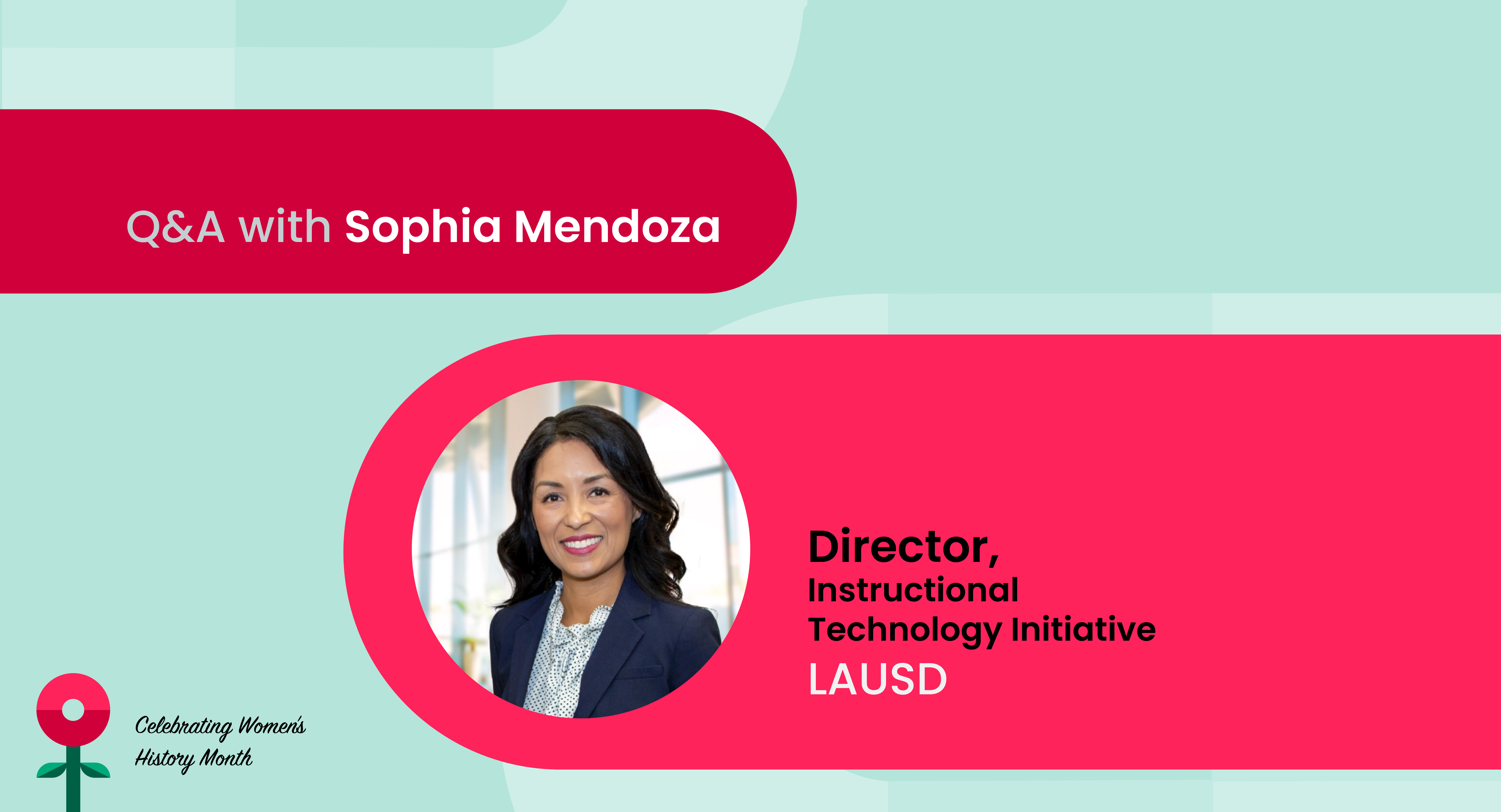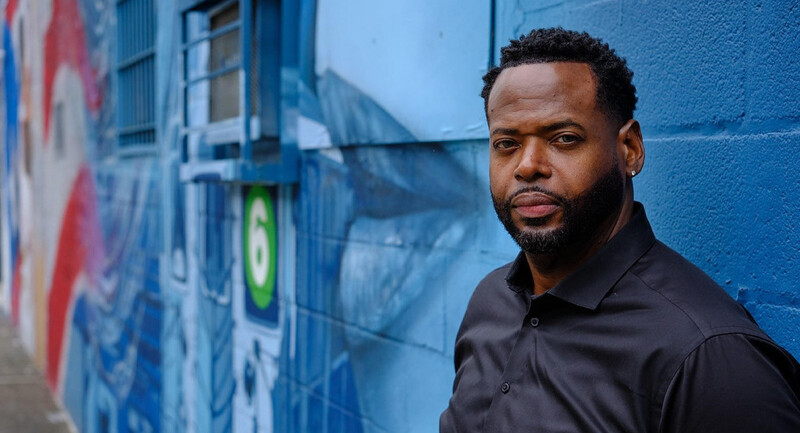A current leader, administrator, and educator in the Los Angeles Metropolitan Area, Sophia Mendoza has been spearheading the edtech movement for decades. Working in one of the largest school districts in the country, Mendoza has focused her career on using technology to empower students to reach their fullest potential. With an emphasis on teaching computer sciences, Mendoza hopes to equip a younger generation with technical skills that will lead them to successful careers.
Why do you think it is important to celebrate Women’s History Month?
I see it as an opportunity to correct the historical marginalization of women, especially the oppression of Black and Brown women. By celebrating Women’s History Month, we can create awareness of the contributions women have made across history.
How do you think women's history has been represented in popular culture? Do you have a book, movie, or other source of inspiration you would like to share?
I think this is a great time to mention a current inspiration of mine, Blair Imani, who wrote Read This to Get Smarter: About Race, Class, Gender, Disability, and More. Imani decodes the negative responses to events such as Women’s History Month, reflects on how we must acknowledge how women have been oppressed, and spotlights all the achievements women have made. This particular work is a great tool for leading the next generation, specifically our boys, and showing them the outline for allyship.
Which women in history have inspired you? Who are some of the most important figures in women's history?
First and foremost, my grandmothers: one was an immigrant and the other was born here in the United States. Thinking about the sacrifices they had to make to carve out a better life for our family has greatly inspired me.
I would be remiss not to mention Dolores Huerta, who has had a tremendous impact on female leaders and especially Chicana (Mexican-American) female leaders here in the American Southwest. She is a recipient of the Eleanor Roosevelt Award for Human Rights from President Clinton and the Presidential Medal of Freedom Award from President Obama.
I did not have a chance to learn about Dolores until I reached higher education, where I read about her history working with Cesar Chavez to advocate for social justice. I take so much inspiration from the way she focuses on building up those around her in the community to improve the lives of all, especially the marginalized members of the community. The way she leads with a social justice lens is an approach that I practice as well when developing programs and plans.
I also want to note that her work is not part of some distant past: Dolores is still alive today and continues to advocate across all platforms. I cannot shout her out enough and I cannot think of anyone more deserving of the title “living legend.”
Do you have a favorite leadership quote, statement, or motto you’d like to share?
“Bloom where you are planted.” I take pride in being a homegrown LA native—I grew up in Pacoima, California—and have remained part of the community I was born into. I took this part of my identity and ran with it. I was the first person to go to college in my family and the first to graduate. I then decided to return home and serve my community. I think “bloom where you are planted” shows that you should not only be proud of who you are and where you come from, but that you are never done growing and can continue to achieve new things along your journey.
What is one tip you’d like to share with other women to help them become more impactful leaders?
Listen to the needs of those in the community that you are serving first. Putting your own perspective aside until hearing from your constituents is vital to figuring out who is being underserved, and will lead to better leadership in the end. Also, be yourself. Showing the most authentic version of you will make connecting with others easier.
This year, #EmbraceEquity is the theme for International Women's Day. How do you embrace equity in your work?
I see my work as embracing equity in many ways. By looking across the students I serve and figuring out who is underrepresented, I can offer my help guiding underserved students into fields that they would normally not believe are open to them. I think this also returns to the idea of being your authentic self: by opening ourselves up to each other we can have meaningful communication that encapsulates so many different identities.
Do you have any parting words of inspiration for others to take with them?
Yes! My own sort of reading of the famous Kaci Diane quote: “You will love the person you have become, because you will have fought to become her.” These are words that I have kept with me throughout my journey that I draw strength from, and I want to pass them along in the hopes that they can help others.
Editor's note: This interview has been edited for space.








